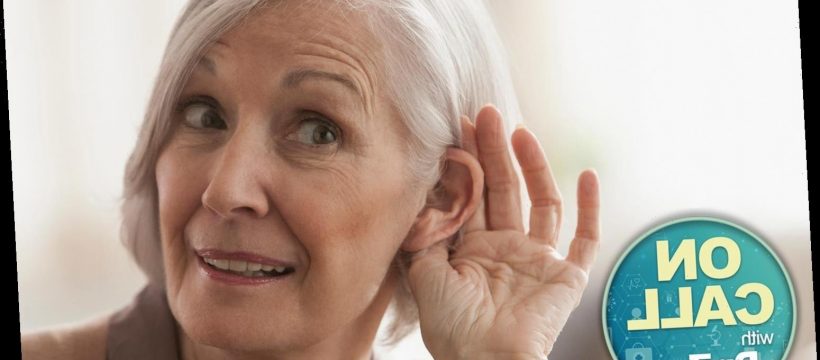YOU probably think it’s just a normal part of getting older. And you would be right . . . to a point.
Hearing loss can gradually get worse over time. You might notice you need to turn up the TV or struggle to hear on the phone.
But you don’t just have to lump it. There are things we GPs can do to help.
Too many of my patients ignore the signs, partly because they can creep up.
But there’s also a real stigma around wearing hearing aids. They’re seen as a sign of old age, so I understand why people can be hesitant.
But acting quickly and getting assistance could help more than just your hearing. These problems can affect your mental and physical health, too.
A paper published in the Lancet earlier this year found those people who suffer the worst hearing loss are more likely to develop dementia.
The report by 28 world-leading experts warned that significant hearing loss increases a person’s risk of the disease by 90 per cent.
Studies suggest parts of the brain that help with memory actually shrink if we cannot hear properly.
But those who wear hearing aids are less likely to develop the condition – and if you’ve already been diagnosed with dementia, wearing hearing aids can slow its progression.
It just shows the difference they can make and is proof it is never too late to act.
Now, it might sound silly to talk about signs and symptoms. Surely loss is loss? But there are different types of hearing loss, for a start, and some signs can be really subtle. So it’s not a stupid question, I promise.
We can break down hearing loss into sudden or gradual and it makes a difference if it affects one ear or both.
Sudden complete loss of hearing is a medical emergency – you should contact your GP, call 111 or attend A&E straight away.
Damage to nerves involved in hearing can cause sudden sensory hearing loss in one or both ears. Immediate treatment can make partial or total recovery more likely.
Other less serious causes include earwax, infection, a burst ear drum or Ménière’s disease.
Don’t use cotton buds
If you notice gradual hearing loss in one ear then glue ear, abnormal bone growth called otosclerosis and a build-up of skin cells can often be the cause.
In both ears, a gradual decline may be age-related, or the result of working in a noisy environment, such as a factory.
So what are the subtle signs it pays to be aware of?
- Struggling to hear loved ones in noisy places.
- Misunderstanding people.
- Struggling to keep up with conversations.
- Asking people to repeat themselves.
- Listening to music or the TV loudly.
- Having to concentrate hard when people are talking, which can prove tiring or stressful.
For parents out there, it’s worth noting that the signs in kids can be a bit different. If you notice your child is slow to talk, if they’re not clear when they do talk or they appear to ignore you, it is worth seeing your GP.
In most cases it will be something like glue ear, which tends to get better over time and can be treated.
As with lots of things health-related, there are steps we can all take to look after our ears.
First, don’t use cotton buds. Earwax is important, it helps the ear clean itself.
The wax, along with the little hairs in the ear canal, help trap dirt and dust before it gets into the middle and inner ear.
If you stick a cotton bud down there, you can affect the wax and cause an infection. It’s fine to use a cotton bud to clean the opening, but never shove one too far into the ear.
Another thing to think about is your headphones – try to give your ears regular breaks from loud noise.
And think about sunscreen. The ears are constantly exposed to the sun, so are a common place to get skin cancer. Another thing to watch is your stress levels, as anxiety can cause tinnitus.
Make time each day to do things that calm you, such as fresh air and exercise.
Last but not least, you can get a hearing test at Specsavers without seeing your GP beforehand.
If your hearing loss is sudden or you are worried, seek urgent medical help. Don’t suffer in silence.
GOT a story? RING The Sun on 0207 782 4104 or WHATSAPP on 07423720250 or EMAIL [email protected]
Source: Read Full Article





